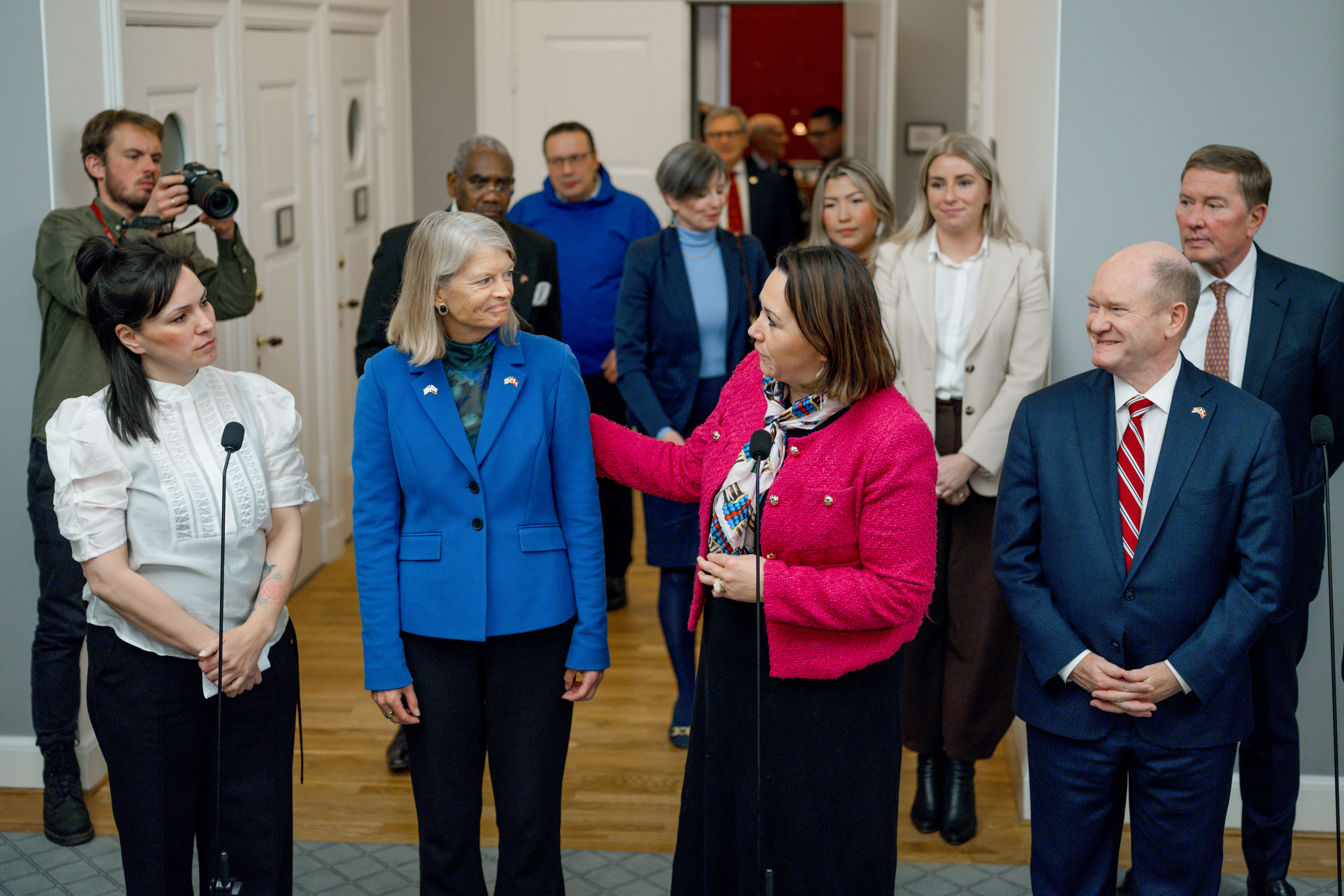John Mulaney is experimenting with late night. It’s not quite working – yet
After watching the first episode of Netflix’s new series Everybody’s Live with John Mulaney, I had one question: What exactly is this show trying to achieve?
No doubt, late night talk shows are in terrible need of reinvention. And as a young-ish comic with a string of successful Netflix stand-up specials and a great run as a writer and performer on Saturday Night Live, Mulaney seems perfectly poised to find a new way to make an ancient genre relevant for streaming TV.
There were lots of moments when it seemed like Mulaney was trying hard to deconstruct all the tropes we have come to expect from traditional talk shows – from the chummy announcer/sidekick to calls from viewers, just like the phone-ins venerated CNN host Larry King featured.
But the offhand, randomly eccentric vibe distilled in Mulaney’s debut Wednesday didn’t feel so much like a bold reinvention of talk shows as an uncomfortable middle ground between parody and mimicry. And instead of lending an air of danger or anything-can-happen excitement, the show’s live element just added an overarching pressure which seemed to stifle the proceedings rather than elevate them.

A lot of the show’s vibe was first revealed in Netflix’s six-night experiment last year, John Mulaney Presents: Everybody’s in L.A.: the roomy set with ornate doors for guests, announcer/onstage foil Richard Kind, appearances by the autonomous delivery drone Saymo and the spot-on choice of theme music, Wang Chung’s 1985 hit “To Live and Die in L.A.”
But while last year’s debut was an entertaining jumble of esoteric ideas – kicked off with a masterful monologue on the absurdity of Los Angeles – the first episode of Everybody’s Live on Wednesday felt a bit more aimless.
Mulaney’s monologue was the high point Wednesday, as the star referenced his past struggles with addiction. “It’s my live, jazz-like unpredictable talk show,” he cracked. “I can’t do coke or Adderall anymore, so I’m making it your problem.”
The monologue took a poignant turn when he referenced wife Olivia Munn’s ongoing fight against breast cancer, noting her “sweet wonderful dumbness” when treatments fogged her mental faculties a bit, leading to a state they both called “cancer brain.” It’s tough to quickly describe the two stories he revealed in that section, but they involved endearing — and confusing — tales about public conversations with other people that referenced sex and bodily functions.
One of the show’s quirks is its tendency to present a comedy bit and then lean away from it in a way that can be confusing. For instance, Kind announced a number of celebrity birthdays during the show, shouting out Al Jarreau before noting minutes later the jazz singer was actually dead (he died in 2017).
“It’s weird that he said ‘happy birthday Al Jarreau,’ and found he was dead at rehearsal, also,” Mulaney said, making the joke clear for anyone who might have been fooled by Kind’s authentic delivery. But as the saying goes, if you have to explain it, the joke probably ain’t working. (And yes, it can be funny to call out jokes that don’t work. But I’m not sure they stuck that landing on this one.)
Mulaney offered a guest list that seemed eclectic and promising: actor Michael Keaton, comic Fred Armisen, legendary folk singer Joan Baez and financial advice columnist Jessica Roy. But the topic at hand — lending people money – didn’t inspire the most scintillating stories.
And even the moments which seemed poised for greatness — like Baez telling a story about how Martin Luther King Jr. and his aides told dirty jokes while they were riding together to an event in the 1960s – fell apart a little when she declined to describe anything they actually said. Other moments, like fellow SNL alum Tracy Morgan appearing as an African monarch named King Latifah, unfolded like an amusing concept hobbled by mediocre writing.
My perceptions may be clouded a bit by memories of times when others successfully reinvented the form. On his NBC show Late Night, David Letterman was brilliant at parodying all the conventions of talk shows at the time while subverting them – pushing his guests to show real anger or discomfort on air and indulging odd stunts like running over random objects with a steamroller.
Mulaney’s work now reminds me of the time when Conan O’Brien took over Late Night after Letterman and spent a while developing a different comedic voice centered on being smartly silly. I’m not saying Everybody’s Live has a similar tone, but you do get a sense that Mulaney is trying a lot of things that seem mildly amusing and subversive to see how it all plays out in front of an audience in real time.
I’m sure there are others who may get what he’s doing faster and enjoy it more. Certainly, as a fan who hopes to see late night TV and Mulaney prosper, this was a program I really wanted to love.
But it was tough on Wednesday to avoid the sense of consuming something not quite fully baked – a show that wasn’t quite sure how, if or why it was going to entertain you, led by a host who seems to be enjoying the absurdity of the whole setup much more than any of the actual content he was presenting.
Which, frankly, might not be the worst way to approach building something new in the live streaming space. We’ll all have 11 more weeks of Wednesday night shows to find out.
Italian fashion designer Valentino dies at 93
Garavani built one of the most recognizable luxury brands in the world. His clients included royalty, Hollywood stars, and first ladies.
Sheinbaum reassures Mexico after US military movements spark concern
Mexican President Claudia Sheinbaum quelled concerns on Monday about two recent movements of the U.S. military in the vicinity of Mexico that have the country on edge since the attack on Venezuela.
Trump says he’s pursuing Greenland after perceived Nobel Peace Prize snub
"Considering your Country decided not to give me the Nobel Peace Prize… I no longer feel an obligation to think purely of Peace," Trump wrote in a message to the Norwegian Prime Minister.
Trump has rolled out many of the Project 2025 policies he once claimed ignorance about
Some of the 2025 policies that have been implemented include cracking down on immigration and dismantling the Department of Education.
Can exercise and anti-inflammatories fend off aging? A study aims to find out
New research is underway to test whether a combination of high-intensity interval training and generic medicines can slow down aging and fend off age-related diseases. Here's how it might work.
U.S. lawmakers wrap reassurance tour in Denmark as tensions around Greenland grow
A bipartisan congressional delegation traveled to Denmark to try to deescalate rising tensions. Just as they were finishing, President Trump announced new tariffs on the country until it agrees to his plan of acquiring Greenland.







